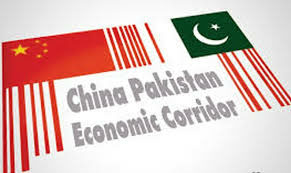China’s high-level opening up will facilitate China-Pakistan cooperation, in light of the decisions, to taken by the ongoing ‘Two Sessions’, China Economic Net reported on Sunday.
The “Two Sessions” of the National People’s Congress (NPC) and the Chinese People’s Political Consultative Conference (CPPCC) are held as scheduled in Beijing. The high-level opening up is keeping pace with the times because the world economy has entered a new period of higher-level cooperation and competition.
China-Pakistan bilateral cooperation should also follow this trend. In the long run, China’s high-level opening up will facilitate China-Pakistan. Firstly it will contribute to a shift of Pakistani geo-economics and the economic security agenda. Pakistan now is striving to transfer its focus on geopolitics and traditional security.
However, it still faces the security threat from a major power in its east and a destabilized Afghanistan in its west. Then the best choice for Pakistan is to “looking to China”, fully exploring the dividends of China-Pakistan “all-weather friendship”.
As an important neighbor of China, Pakistan will definitely benefit from China’s burgeoning market. What’s more, high-standard opening-up means that China will be deeply engaged in international cooperation in the new areas including green and low-carbon development and digital economy, which are also high on the agenda of Pakistan.
Secondly, China-Pakistan Economic Corridor (CPEC) will usher in a new development opportunity. The report added, amid growing economic uncertainty, a continued fight against COVID-19, and a complex international landscape, this year’s “Two Sessions” have attracted a lot of attention not only in China but around the globe.
On March 5, Premier Li Keqiang delivered the annual government work report before the NPC deputies, which reviews the Chinese economy in 2021 and provides a roadmap for China’s economic and social development in 2022. According to the report, in spite of pressure and challenges arising from the changing economic environment at home and abroad, China’s economy maintained sound development momentum and achieved outstanding performance with many highlights in 2021.
The report indicates that foreign investors are fully confident in the opportunities offered by China’s broad market and its sound business environment.
In 2022, Premier Li announced that China’s GDP growth target will be about 5.5 %. Though this growth goal is the lowest in more than three decades, it’s above consensus forecasts closer to 5% and far higher than the International Monetary Fund’s projection of a 4.8% expansion.
For the year 2022, the nation will strive to create at least 11 million jobs in the urban areas and maintain surveyed urban unemployment rate at below 5.5 percent.
The government has set its inflation target at around 3 percent for 2022, and the ratio of its deficit to GDP at around 2.8 percent for 2022, slightly lower than last year.
To achieve these targets, China will actively increase imports of quality products and services, and explore new ways to develop trade in services and digital trade. As Pakistani Ambassador to China Moin ul Haque said, the “Two Sessions” are “very important because China is an important country, the second-largest economy in the world.
So whatever decisions are taken in these sessions can have not only an impact on the Chinese economy but also on the global economy”.
When it comes to the China-Pakistan cooperation, we can get a lot of useful information from the annual government work report 2022, in which the key word “high-level opening up” is very important.
With the development of CPEC and the implementation of the Second Phase Protocol of the China-Pakistan Free Trade Agreement, China’s high-level opening up will bring a larger market and lay a more solid foundation for upgrading China-Pakistan bilateral trade. In 2021, bilateral trade between China and Pakistan, and Pakistan’s exports to China, have both increased at record levels. According to the annual government work report 2022, China will make full use of international and domestic markets and resources, and continue to expand international economic and trade cooperation.—INP









